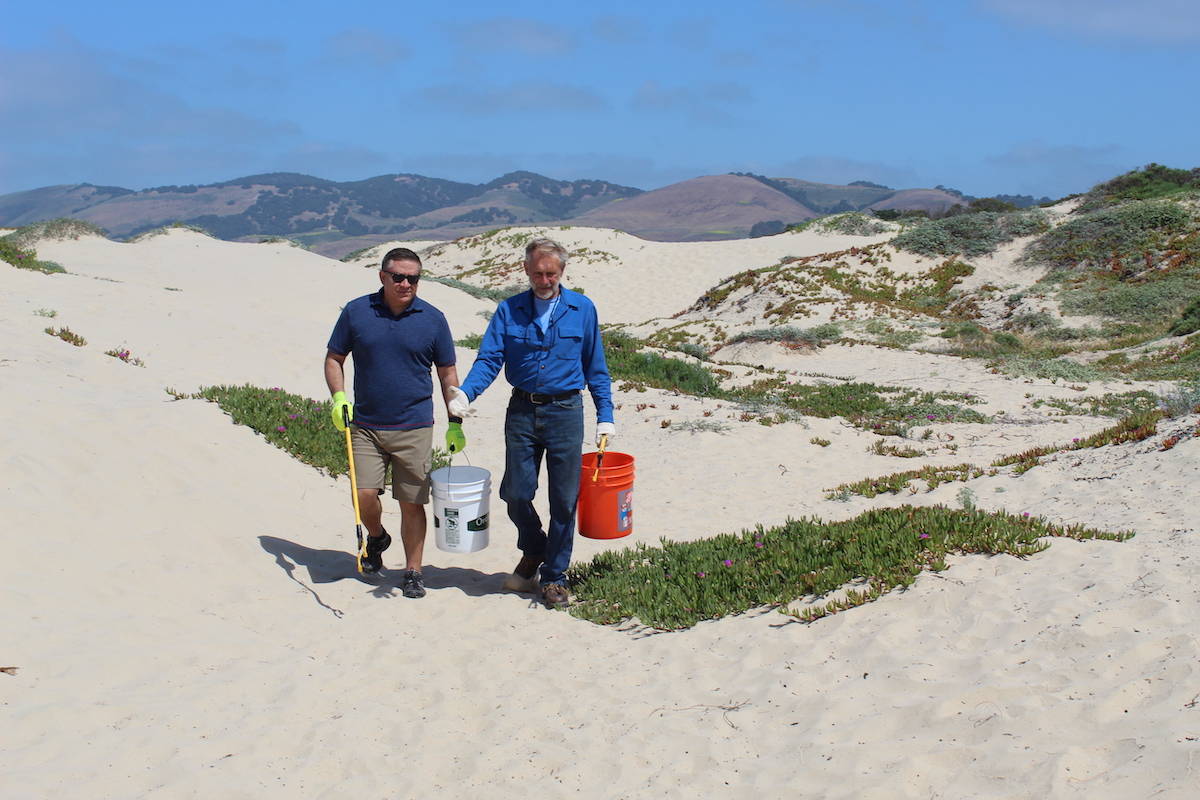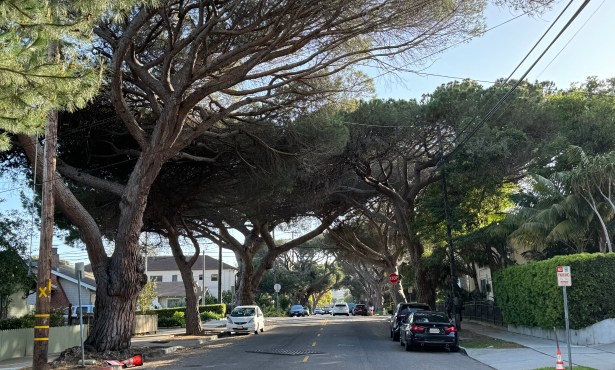Celebrate Earth Day with Action
The Fight to Protect Our Coast and Keep It Clean

Earth Day celebrations are a time-honored tradition on the Central Coast. In fact, we can trace the origins of Earth Day back to Santa Barbara. The 1969 Santa Barbara Oil Spill, which deposited hundreds of thousands of gallons of polluting oil into our ocean waters and onto our beaches, killed thousands of marine animals, served as a catalyst for the very first Earth Day. This also inspired the broader American environmental movement. At the time, it was the largest oil spill in American history. Today, it ranks third.
Several decades later, in 2015, our local environment was again devastated by the Refugio Oil Spill when a corroded Plains All American pipeline, Line 901, ruptured and spilled over 140,000 gallons of crude oil along the Gaviota coast. I walked along that beach after the spill and the image of our coast slicked with oil has stayed with me and inspires my work in Congress to this day.
It took over two hours to detect the source of the spill, because pipeline operators turned off the alarm to notify them of a leak, and because the pipeline was not equipped with an automatic shut-off valve. A year after the spill, an inspector general report found that the Pipeline Hazardous Materials Safety Administration (PHMSA) failed to implement dozens of legally-required safety measures for eight years. One of those measures requires pipelines to have an automatic shut-off valve.
This oversight caused irreversible damage to one of the most biologically diverse marine ecosystems in the United States and clean-up costs alone amounted to $92 million dollars. This does not even include the losses coastal businesses and our local economy experienced. As a member of the Transportation and Infrastructure committee, which oversees PHMSA, I have pressed the agency to explain and rectify the delay in enacting safety measures, which could have mitigated the damage of the Refugio Oil Spill.
Offshore drilling is risky, and the toll on our economy and environment is not worth it. That’s why the very first bill I ever introduced in Congress was the California Clean Coast Act, which would permanently ban new oil and gas leases off our entire coastline. I also want to applaud President Biden for signing an executive order, a few weeks into his term, to pause new oil and gas drilling leases for review.
However, oil spills are just one consequence of our overreliance on fossil fuels. The scientific community has made it abundantly clear that human use of fossil fuels is responsible for the climate crisis we are facing today. Climate change has contributed to more devastating wildfire seasons, prolonged droughts, rising sea-levels, and diminishing biodiversity.
We have inherited a beautiful planet, but we are also destroying it. We have an obligation to be good stewards of the environment and preserve nature for future generations to experience and enjoy. I take this responsibility seriously and have worked aggressively in Congress to protect our environment and tackle the climate crisis head-on.
When the Bureau of Land Management (BLM), operating under the Trump administration, proposed expanded fracking in over 1 million acres of land in Ventura, Santa Barbara, and San Luis Obispo counties, I introduced the California Land Protection Act. This bill would block the new fracking efforts until BLM conducts an environmental review to prove the effort will not negatively impact the environment, air, or water quality for surrounding communities.
I have also fought to include more of our public lands into conservation. I authored the Central Coast Heritage Protection Act, which would protect over 250,000 acres of public land in the Carrizo Plain National Monument and Los Padres National Forest by designating it as wilderness. The wilderness designation is the highest form of federal protection and permanently blocks development in the region, including oil and gas drilling.
The Central Coast Heritage Protection Act has passed the House, as part of larger conservation packages, multiple times. With a new administration, new voices in the Senate, and continued support from our community, I’m hopeful we can get this important bill across the finish line. Given that nearly a quarter of greenhouse gas emissions come from fossil fuel extraction on public lands, I’m grateful President Biden has set a goal to conserve 30 percent of our public lands by 2030. The Central Coast Heritage Protection Act would help us achieve that goal.
All these measures will have a significant impact in the fight against climate change, but it is clear that we need to transition away from our dependence on fossil fuels to cleaner energy sources like solar and wind. I’m the co-chair of the Offshore Wind Caucus in Congress and created the Offshore Wind Working Group, a coalition of federal and state partners, to bring this burgeoning industry to the region off our coast.
I also introduced legislation, the Energy Opportunity Zones Act, to use tax credits to incentivize renewable energy investment and development on the Central Coast to offset the energy and job losses we will face when the Diablo Canyon Nuclear Power Plant closes. Investment in renewables helps us fight climate change and create good-paying jobs. The Central Coast is uniquely poised to reap the benefits of renewable energy’s untapped potential.
Congress has only just begun discussing the details of President Biden’s American Jobs Plan, which will repair, modernize, and elevate America’s infrastructure in a way that creates jobs and takes climate change into account. As a member of the Transportation and Infrastructure Committee, I will work to make sure the final bill reflects our Central Coast values.
Every single one of us has a role to play in the fight against climate change. I’ll keep working collectively with you to honor the spirit of Earth Day, today and every day, through action and advocacy on behalf of our shared values.
This Saturday, April 24, at noon, I will have the privilege of speaking with fellow community leaders about climate action with Santa Barbara Earth Day. I hope to see you there!
Salud Carbajal is represents Santa Barbara, San Luis Obispo, and part of Ventura counties as the U.S. representative for the 24th Congressional District.
Support the Santa Barbara Independent through a long-term or a single contribution.



